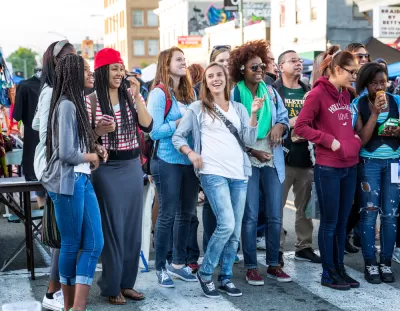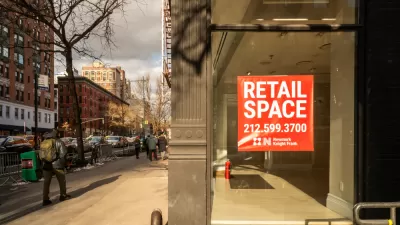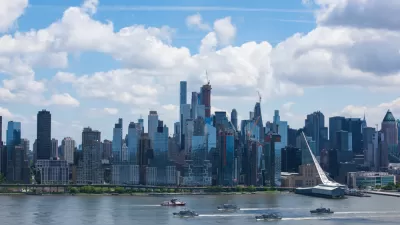Research from Brookings identifies metro areas with economies that are not only growing, but growing in an equitable way. The list is short, but may offer some insights.

The economy can look very different depending on where you're standing. Richard Shearer and Alan Berube write, "inclusive growth occurs when all segments of society share in the benefits of economic growth [...] recent failures to achieve inclusive growth, especially in advanced economies like Europe and the United States, helps to explain the political and societal divisions they increasingly face."
According to data from the Brookings Metro Monitor, inclusive growth is hard to achieve these days. "Measured one way—by improving the employment rate, median earnings, and relative poverty—only 11 of the 30 [most prosperous] metro areas achieved inclusive economic outcomes: Albany, Austin, Charleston, Columbus, Dayton, Denver, Oklahoma City, Omaha, San Antonio, Tulsa, and Worcester."
The piece lists some characteristics of more inclusive urban economies. "These patterns indicate a 'high-road' economic development strategy that prioritizes both high-skilled, innovative sectors like technology and middle-skill traded sectors like manufacturing and logistics can facilitate inclusive growth."
FULL STORY: The surprisingly short list of U.S. metro areas achieving inclusive economic growth

Planetizen Federal Action Tracker
A weekly monitor of how Trump’s orders and actions are impacting planners and planning in America.

Congressman Proposes Bill to Rename DC Metro “Trump Train”
The Make Autorail Great Again Act would withhold federal funding to the system until the Washington Metropolitan Area Transit Authority (WMATA), rebrands as the Washington Metropolitan Authority for Greater Access (WMAGA).

DARTSpace Platform Streamlines Dallas TOD Application Process
The Dallas transit agency hopes a shorter permitting timeline will boost transit-oriented development around rail stations.

Renters Now Outnumber Homeowners in Over 200 US Suburbs
High housing costs in city centers and the new-found flexibility offered by remote work are pushing more renters to suburban areas.

The Tiny, Adorable $7,000 Car Turning Japan Onto EVs
The single seat Mibot charges from a regular plug as quickly as an iPad, and is about half the price of an average EV.

Supreme Court Ruling in Pipeline Case Guts Federal Environmental Law
The decision limits the scope of a federal law that mandates extensive environmental impact reviews of energy, infrastructure, and transportation projects.
Urban Design for Planners 1: Software Tools
This six-course series explores essential urban design concepts using open source software and equips planners with the tools they need to participate fully in the urban design process.
Planning for Universal Design
Learn the tools for implementing Universal Design in planning regulations.
Municipality of Princeton
Roanoke Valley-Alleghany Regional Commission
City of Mt Shasta
City of Camden Redevelopment Agency
City of Astoria
Transportation Research & Education Center (TREC) at Portland State University
US High Speed Rail Association
City of Camden Redevelopment Agency
Municipality of Princeton (NJ)





























